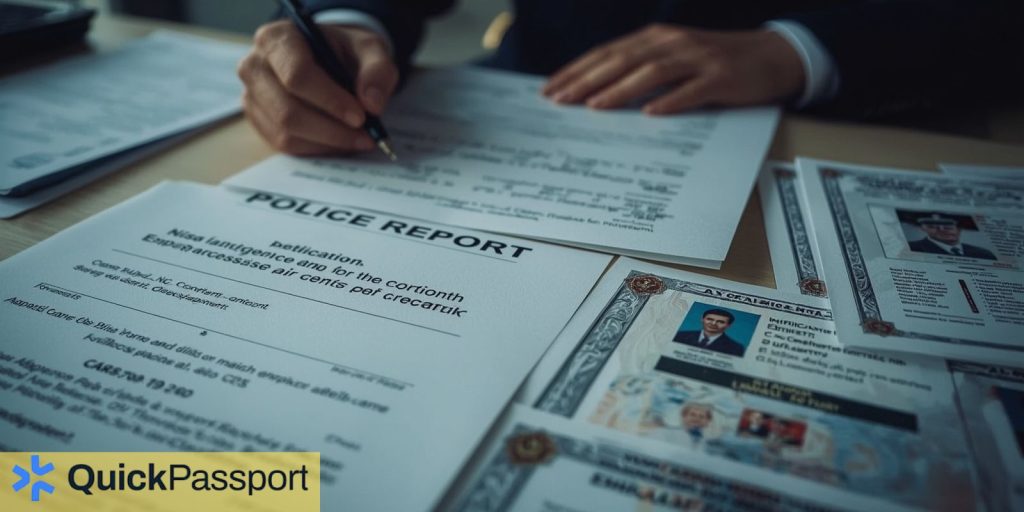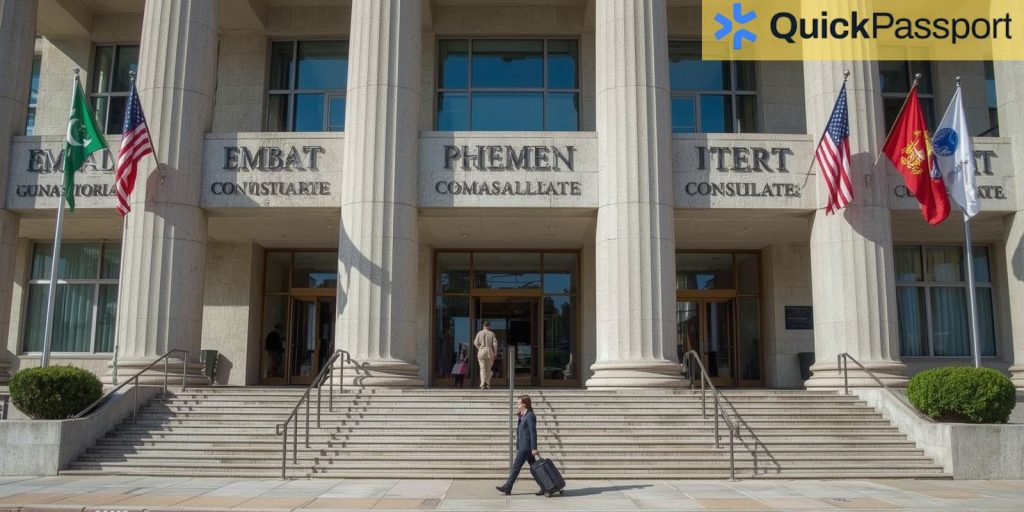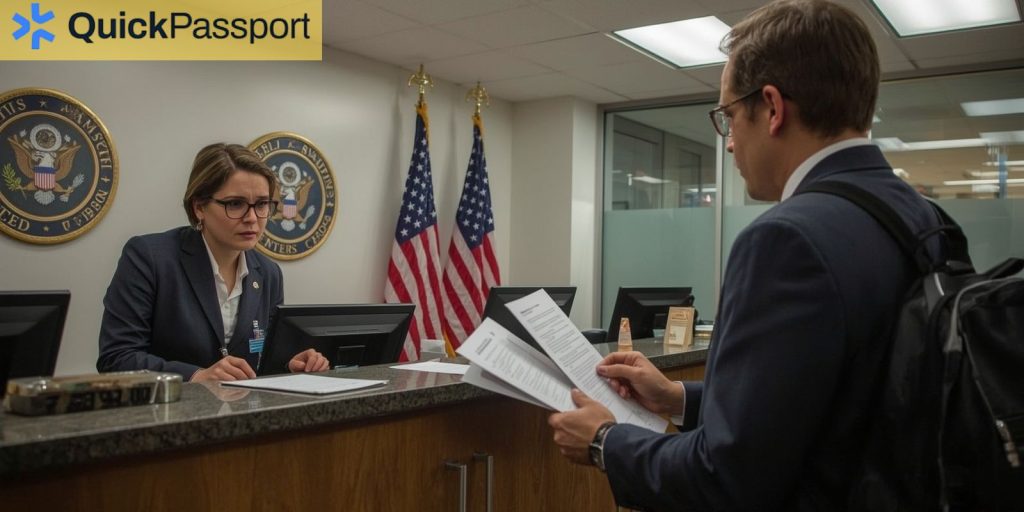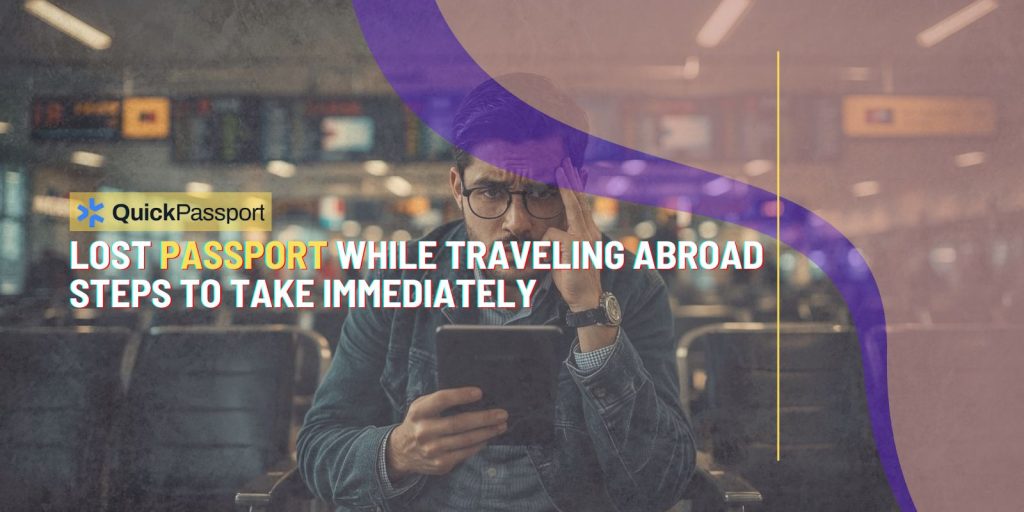Losing your passport while traveling abroad can transform an exciting adventure into a stressful nightmare within moments. Whether it slipped out of your bag during a bustling market visit, was stolen from your hotel room, or simply vanished without explanation, finding yourself without this crucial document in a foreign country triggers immediate panic and uncertainty. The reality is that your passport serves as your primary identification and your ticket home, making its loss one of the most serious travel emergencies you can face.
Understanding the immediate steps to take when you discover your lost passport while traveling abroad can mean the difference between a minor inconvenience and a prolonged ordeal that derails your entire trip. Time becomes your most valuable asset in these situations, as prompt action can significantly reduce the complexity and duration of resolving this crisis. The process involves multiple steps, from securing your immediate safety to navigating bureaucratic procedures, and each action must be taken in the correct sequence to ensure the most efficient resolution.
The emotional impact of losing your passport abroad cannot be understated. Beyond the practical implications, travelers often experience feelings of vulnerability, isolation, and helplessness when faced with this situation. These feelings are completely normal and understandable, but they shouldn’t paralyze you from taking the necessary actions. Having a clear understanding of the required steps before you travel can provide peace of mind and enable you to act decisively if this unfortunate situation arises.
Modern travel has made passport loss more manageable than in previous decades, thanks to digital record-keeping, improved communication systems, and streamlined embassy procedures. However, the fundamental steps remain consistent regardless of your destination, and preparation is key to minimizing the impact on your travel plans. Whether you’re backpacking through Southeast Asia, conducting business in Europe, or enjoying a family vacation in South America, the protocols for handling a lost passport remain largely the same, though specific requirements may vary by country and embassy.
Key Takeaways
- Act immediately upon discovering the loss – Time is crucial when dealing with a lost passport abroad, as delays can complicate the replacement process and extend your stay unexpectedly.
- Report to local authorities first – Filing a police report creates an official record of the theft or loss, which is required by most embassies before they will issue replacement documents.
- Contact your embassy or consulate promptly – These diplomatic missions are specifically equipped to handle passport emergencies and can guide you through the replacement process efficiently.
- Gather required documentation – Having copies of your passport, birth certificate, driver’s license, and other identification documents significantly speeds up the replacement process.
- Understand emergency travel document options – Embassies can issue temporary travel documents that allow you to return home when a full passport replacement isn’t immediately possible.
- Prepare for additional costs – Emergency passport services, extended accommodation, and changed travel arrangements can significantly increase your trip expenses.
- Notify relevant parties of your situation – Inform your travel insurance company, airline, hotel, and family members about your circumstances to coordinate necessary changes and support.
- Take preventive measures for future travel – Learning from this experience can help you implement better security practices and preparation strategies for subsequent trips.
Understanding the Immediate Impact of Passport Loss
When you realize your passport is missing while traveling internationally, the immediate impact extends far beyond simply lacking identification. Your passport represents your legal right to be in a foreign country and, more importantly, your ability to return home. Without it, you become essentially stateless in the eyes of immigration authorities, unable to cross borders or prove your citizenship. This situation can trigger a cascade of complications that affect every aspect of your travel experience.

The first emotional response is typically panic, followed by a frantic search through luggage, pockets, and recent locations. While this initial search is natural and sometimes successful, it’s important to limit this phase to avoid wasting precious time that could be better spent on official procedures. Many travelers make the mistake of spending entire days retracing their steps instead of immediately beginning the formal replacement process, which only delays their resolution and increases stress levels.
Understanding your legal status without a passport helps put the situation in perspective. While you’re not immediately subject to deportation or arrest, you are in violation of local immigration laws if you cannot produce valid documentation when requested. Most countries have procedures for handling tourists who lose their passports, but these processes require proper documentation and official channels. Local authorities are generally understanding of genuine passport loss situations, especially when travelers follow proper reporting procedures.
The practical implications extend to your ability to access various services that require passport verification. Hotels may refuse to allow you to check in or extend your stay without proper identification. Banks and money exchange services typically require passport verification for transactions. Even some tourist attractions and transportation services may deny access without proper documentation. These limitations can significantly restrict your mobility and options while awaiting passport replacement.
Immediate Steps to Take When You Discover the Loss
The moment you confirm your passport is truly lost, your response must be swift and systematic. Begin by ensuring your immediate safety and security, particularly if the loss occurred due to theft or in an unsafe area. Move to a secure location where you can think clearly and access communication tools. If you suspect theft, be aware that criminals may still be in the vicinity, and your personal safety takes priority over document recovery efforts.
Conduct one final, thorough search of your belongings and recent locations before accepting the loss as confirmed. Check every pocket, compartment, and bag systematically. Contact any establishments you visited recently, including restaurants, hotels, transportation services, and tourist attractions. Many lost passports are turned in to lost-and-found departments or local authorities by honest individuals who discover them. However, limit this search phase to a few hours at most before moving to official procedures.
Immediately notify your travel companions, family members, or emergency contacts about the situation. They can provide emotional support and practical assistance, such as helping you locate embassy contact information or assisting with communication if you’re in a country where language barriers exist. If you’re traveling with others, ensure they secure their own passports and documents to prevent additional losses that could complicate your group’s situation further.
Document the circumstances of the loss as thoroughly as possible while the details are fresh in your memory. Write down the exact time, location, and circumstances when you last remember having your passport and when you discovered it missing. Note any suspicious individuals or activities you may have encountered. This information will be crucial when filing police reports and embassy paperwork, and accurate details can sometimes help in recovery efforts.
Secure your remaining valuables and documents immediately. If your passport was stolen, assume that thieves may attempt to access other items or return to target you again. Move to different accommodations if necessary, and ensure your remaining identification documents, credit cards, and cash are safely stored. Consider dividing these items among multiple secure locations to prevent total loss if another theft occurs.
Reporting to Local Authorities and Filing Police Reports
Filing a police report represents the first official step in the passport replacement process and is mandatory in most countries before embassies will issue replacement documents. Locate the nearest police station or tourist police unit, as many popular destinations have specialized units trained to handle tourist-related crimes and emergencies. Tourist police typically have multilingual capabilities and experience with passport loss situations, making them ideal for initial reporting.

When reporting to police, bring any remaining identification documents you possess, such as driver’s licenses, credit cards with your name, or photocopies of your lost passport if available. Provide a detailed account of when and where you believe the passport was lost or stolen, including specific times, locations, and circumstances. Be honest about any uncertainty regarding whether the passport was lost or stolen, as this affects how authorities classify and investigate the incident.
The police report serves multiple purposes beyond simple documentation. It creates an official record that helps prevent fraudulent use of your lost passport and provides embassies with the documentation they require before issuing replacements. Additionally, travel insurance companies typically require police reports before processing claims related to lost documents and associated expenses. Ensure you receive multiple copies of the report, as you’ll need them for various purposes throughout the replacement process.
Be prepared for varying levels of efficiency and helpfulness from local police forces. In tourist-heavy areas, police are generally experienced with passport loss cases and can process reports quickly. However, in remote areas or countries with limited resources, the process may take longer and require more patience. Language barriers can complicate reporting, so consider using translation apps or seeking assistance from bilingual locals or hotel staff if necessary.
Some countries have specific procedures for passport loss that differ from standard crime reporting. Research local requirements if possible, or ask police about special procedures for foreign tourists. Certain destinations require additional forms or have specific departments that handle passport-related issues. Understanding these local variations can prevent delays and ensure you complete all necessary steps correctly from the beginning.
Contacting Your Embassy or Consulate
Reaching out to your embassy or consulate represents the most critical step in obtaining passport replacement while abroad. These diplomatic missions exist specifically to assist citizens in distress and have established procedures for handling passport emergencies efficiently. Most embassies maintain 24-hour emergency contact numbers for urgent situations, though non-emergency services typically operate during standard business hours.
Before contacting the embassy, gather all available documentation and information about your situation. This includes your police report number, any remaining identification documents, details about your travel itinerary, and information about your planned departure date. Having this information readily available allows embassy staff to assess your situation quickly and provide appropriate guidance for your specific circumstances.
Embassy staff will explain the available options for document replacement, which typically include emergency travel documents for immediate return home or full passport replacement for continued travel. Emergency travel documents are usually processed more quickly but have limitations on where you can travel and may require additional procedures upon returning home. Full passport replacement takes longer but provides complete travel flexibility.
Schedule an appointment as soon as possible, as embassy services often have limited availability and high demand during peak travel seasons. Some embassies accept walk-in appointments for emergencies, while others require advance scheduling even for urgent situations. Be prepared to explain your circumstances and provide evidence of your travel timeline to demonstrate the urgency of your situation.
Understanding the fee structure for emergency passport services helps you prepare financially for the replacement process. Emergency services typically cost significantly more than standard passport applications, and payment methods may be limited to specific options such as money orders or credit cards. Some embassies can facilitate emergency fund transfers from family members if you lack sufficient resources to pay for replacement documents.
Required Documentation and Application Procedures
The documentation required for passport replacement abroad is more extensive than standard renewal applications and requires careful preparation to avoid delays. Primary identification documents include birth certificates, driver’s licenses, or any official government-issued identification that establishes your citizenship and identity. If you don’t have original documents with you, certified copies or notarized photocopies may be acceptable, depending on embassy policies.

Passport photos meeting specific requirements are mandatory for all replacement applications. Embassy locations often have approved photo services nearby, or staff can direct you to appropriate facilities. Ensure photos meet current specifications for size, background color, and composition, as non-compliant photos will delay processing. Some embassies have photo services on-site for convenience, though these may have limited hours or availability.
The passport application form instructions for emergency replacements differ from standard applications and require additional information about the circumstances of your loss. Complete forms thoroughly and accurately, as incomplete applications cause significant delays. Embassy staff can assist with form completion if you have questions, but having a clear understanding of required information beforehand speeds up the process considerably.
Proof of travel plans becomes crucial when applying for emergency documents, as embassies prioritize applications based on departure urgency. Provide airline tickets, hotel reservations, or other documentation showing your planned travel dates. If your original tickets are no longer valid due to the passport loss, explain your intended travel timeline and any constraints affecting your departure plans.
Character references or verification of your identity may be required if you lack sufficient documentation. This can include contact information for family members, employers, or other individuals who can verify your identity and citizenship. Some embassies may contact these references directly, so ensure the people you list are available and aware they may be contacted regarding your situation.
Understanding Emergency Travel Documents vs. Full Replacement
Emergency travel documents and full passport replacements serve different purposes and have distinct advantages and limitations that affect your travel decisions. Emergency travel documents, also known as emergency passports or temporary travel documents, are designed primarily to facilitate your immediate return home and are typically processed within 24-48 hours. These documents have limited validity periods and may restrict your ability to travel to multiple countries or make stops during your return journey.
Full passport replacements provide complete travel flexibility and standard validity periods but require longer processing times, typically 5-10 business days depending on the embassy location and current workload. If your travel plans include multiple destinations or you’re early in a extended trip, a full replacement may be worth the additional wait time. However, if you’re near the end of your travels or facing urgent circumstances requiring immediate return, emergency documents offer the fastest solution.
Cost considerations differ significantly between these options, with emergency documents typically costing more than full replacements due to expedited processing requirements. Additionally, emergency travel documents may require you to apply for a new standard passport immediately upon returning home, effectively doubling your documentation costs. Factor these financial implications into your decision-making process, especially if budget constraints affect your options.
The acceptance of emergency travel documents varies by country and airline, with some destinations or carriers having restrictions on temporary documentation. Verify that your planned route home accepts emergency documents before choosing this option, as being denied boarding or entry could create additional complications. Most direct routes to your home country accept emergency documents without issues, but complex itineraries may face restrictions.
Processing requirements also differ between document types, with emergency documents often having streamlined application procedures but stricter eligibility criteria. You may need to demonstrate genuine emergency circumstances or immediate travel necessity to qualify for expedited processing. Full replacements have more flexible eligibility but require complete standard application procedures that take additional time to process thoroughly.
Professional Assistance from QuickPassport – Denver
When facing the complex process of passport replacement while abroad, professional assistance can prove invaluable in navigating bureaucratic requirements and ensuring proper documentation. QuickPassport – Denver specializes in expediting passport services and providing expert guidance for travelers facing document emergencies. Their experienced team understands the intricacies of international passport replacement procedures and can coordinate with embassies and consulates to facilitate faster processing times.
QuickPassport – Denver offers comprehensive support services that extend beyond simple application assistance. They can help coordinate document gathering, verify application completeness, and provide guidance on the most appropriate replacement options based on your specific travel circumstances. Their expertise becomes particularly valuable when dealing with complex situations involving multiple countries, extended travel plans, or unusual documentation requirements that may arise during international emergencies.
The service provides peace of mind for travelers by handling communication with various government agencies and ensuring all procedures are followed correctly. This professional oversight reduces the risk of application delays or rejections due to incomplete documentation or procedural errors. For business travelers or those with time-sensitive travel requirements, this professional assistance can be crucial in minimizing disruption to important plans and commitments.
QuickPassport – Denver also offers preparation services for future travel, helping clients establish proper documentation backup systems and emergency procedures to prevent or minimize the impact of similar situations. Their preventive approach includes guidance on document security, backup documentation strategies, and emergency contact procedures that can significantly reduce stress and complications if passport loss occurs during subsequent travels.
Frequently Asked Questions
How long does it take to replace a lost passport while traveling abroad?
Emergency travel documents typically take 24-48 hours to process, while full passport replacements require 5-10 business days depending on the embassy location and current workload. Processing times may be longer during peak travel seasons or in locations with limited embassy resources.
Can I travel to other countries with an emergency travel document?
Emergency travel documents are primarily designed for direct return to your home country and may have restrictions for travel to third countries. Some destinations and airlines may not accept temporary travel documents, so verify acceptance before making travel arrangements.
What if I don’t have any backup identification documents with me?
Embassies can work with limited documentation, but the process becomes more complex and time-consuming. They may require character references, additional verification procedures, or contact with family members to establish your identity and citizenship before issuing replacement documents.
Will my travel insurance cover expenses related to a lost passport?
Most comprehensive travel insurance policies cover reasonable expenses related to lost passport replacement, including document fees, additional accommodation costs, and changed travel arrangements. However, coverage varies by policy, so review your specific terms and file claims promptly with required documentation.
Should I cancel my credit cards if my passport was stolen?
If your passport was stolen along with other documents or if you suspect identity theft, contact your credit card companies and banks immediately to report potential fraud and monitor your accounts for unauthorized activity. Even if cards weren’t taken, passport theft can sometimes lead to identity theft attempts.
Can family members help expedite the passport replacement process?
Family members can assist by providing verification of your identity, sending required documents electronically or by courier, and coordinating with professional services like QuickPassport – Denver to ensure proper documentation and procedures are followed correctly.
What happens to my lost passport if someone finds it later?
Once you report a passport as lost or stolen, it becomes invalid even if recovered later. Attempting to use a reported lost passport can result in serious legal complications and travel delays. Always use your replacement document for all future travel, even if the original is recovered.
Are there countries where passport replacement is particularly difficult?
Remote locations with limited embassy services or countries with strained diplomatic relations may present additional challenges for passport replacement. Research embassy locations and services before traveling to remote areas, and consider carrying extra documentation when visiting such destinations.
Conclusion
Losing your passport while traveling abroad represents one of the most stressful situations any traveler can face, but understanding the proper steps to take immediately can transform a potential disaster into a manageable inconvenience. The key to successfully navigating this challenge lies in prompt action, systematic approach to required procedures, and maintaining calm focus despite the emotional stress of the situation. By following the established protocols for reporting, documentation, and embassy procedures, most travelers can obtain replacement documents within a reasonable timeframe.
The importance of preparation cannot be overstated when it comes to preventing and managing passport loss situations. Maintaining backup documentation, understanding embassy locations and procedures, and having emergency contact information readily available can significantly reduce the complexity and stress of replacement procedures. Professional services like QuickPassport – Denver provide valuable expertise and support that can expedite the process and ensure all requirements are met correctly from the beginning.
Remember that passport loss, while serious, is a solvable problem that thousands of travelers face successfully each year. Embassy staff are experienced in handling these situations and are specifically trained to assist citizens in distress abroad. With proper preparation, quick action, and professional guidance when needed, you can minimize the impact on your travel plans and return home safely with proper documentation.






